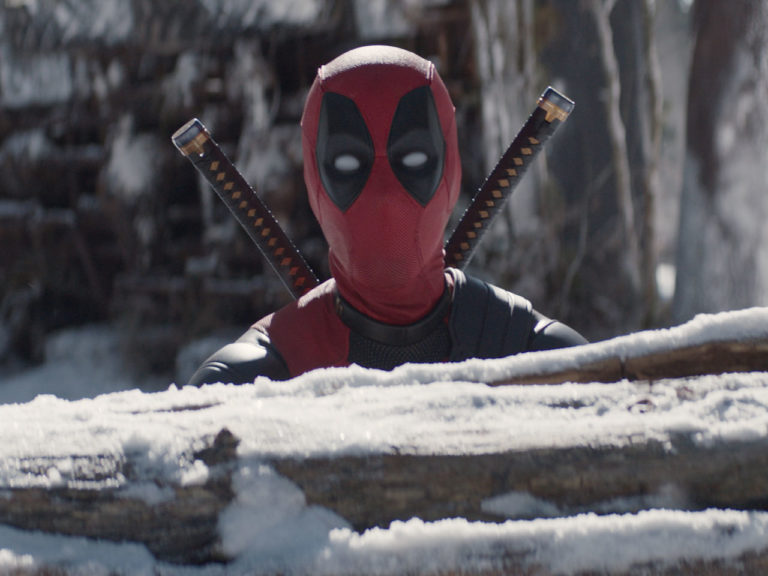
When I watched Teen Titans Go! To The Movies near the back end of 2018, I laughed pretty hard at a joke about Alfred getting a film before Robin. What I didn’t expect was for that joke to be eerily accurate: because here we are, with a second season of Pennyworth on the way. The Epix original series detailing the life of a young Alfred Pennyworth (shortly after his military years, before coming into the service of Thomas and Martha Wayne) is, while flawed, wildly entertaining; featuring some shockingly good performances that carry the strange, gothic story in an alternate version of London. Clearly, a great deal of effort was put into this show’s atmosphere and gravitas, but nowhere is that more evident than its soundtrack. It was my pleasant surprise to find out that its composer, David Russo, was also the composer of Gotham’s OST, and has a long history in the music and television industry. I spoke to Russo recently, and our discussion held a lot of insight: both into the production of Gotham and Pennyworth, but also into the larger world of music production.

To begin, I wanted to ask him about the band that he co-founded with Joan Jones: Sun-60. For those unaware, Sun-60 was an Alternative Rock band that released three albums over the course of its history, their work featuring in several movies and cultivating a following across the United States (I’m listening to their second album, Only, as I write this.) So, how was the band created?
“It always starts with a girl,” he began. “Yeah, I met a girl, fell in love with her. And if she had said, I want to go open a shop and sell cheese, I would have sold cheese. But she was a great singer, and a songwriter, and I just wanted to be in the room with her. Next thing I know we’re writing songs. And then we started performing for a while in LA. We were pretty popular, which was not an easy thing to do, but something came together and then we were signed by Epic Records. We did three CDs, toured a lot, but never really made much headway; never sold more than about 40,000 of any CD. But I lived the life for six years and loved it, and had great experiences.”

One thing that I wanted to ask was the origin of the name “Sun-60”, so it was surprising to hear that this wasn’t the band’s original name. “When we got signed, our name was already taken by some band in Florida. And we tried to buy the name but they just wanted too much money, so we had to come up with something else. And then I just looked in the news – the tallest building in Japan at the time was the Sun(shine) 60. I thought, ‘That’s kind of bright. Kind of fresh. Why not?’ So that’s all it meant.”
Curious, I asked what the original name was, and was somewhat taken aback.
“Far Cry.”
“Far Cry?”
“Far Cry,” David repeated, and I decided to pry before the conversation turned into a Who’s On First routine.
“Completely coincidental?”
“Yeah.”

“So, I suppose the video game would have had to have bought the rights as well.”
“Yeah, you know, probably.” He took a moment to think. “They’re this cover band, a bar band down in Florida. Made a pretty penny, hopefully, off that name. But if you have a completely different product, do you still have to buy that name? I guess you do.”
So, that was something I didn’t expect to learn out of the interview. I was interested to learn some stories about making the albums, though, and he told me an interesting one about the production of Only.
“Before the band got signed, I worked with this producer Scott Litt, who’d done a lot of big bands – I worked in the studio with him, kind of just helping. He was executive producer of that second album, and I produced it. Something about the way we did it was really fun, like… the lead singers’ parents, they heard that there was a miracle happening in Yugoslavia, where you could see, like, [a vision of] the Virgin Mary. And they’re devout Catholics. So we made a deal with them. We said, ‘We’ll buy you your trip to Yugoslavia, if you let us have the house to record in.’ So they went on their trip for like a couple of months, and we ran wires all over that house, we were recording drums in the living room. And it was a three story house in the Hollywood Hills, and that was a blast. So it was just a lot of creativity. At that point, we used a lot of different musicians; and we worked with one of the guys from Jane’s Addiction, Dave Navarro, to play guitar, and this guy from this band Eleven, Jack Irons, to play drums – and we were all over the place and it was just really fun.”

Of course, now I had to ask how the band split, and it shed some light on how he started on the road to Gotham and Pennyworth, as well as the nature of a band’s lifespan.
“So we had a four album deal with Epic. When our third album came out, there was a complete change in the leadership of the label – and they offered to buy us out, so we could walk away with a chunk of cash. Seemed like a good idea. And then the lead singer got signed to Hollywood Records and did her own solo album, and I kind of was completely ready for a change of life. I was really not enjoying being in a band at all. And I think any band is designed to self-destruct at some point, you know? You’re in this intense relationship. It’s hard to sustain. I think maybe if we’d been more successful, we could have gone on, but at that point, I had already been into doing film work. So I kind of wanted something musically, that was completely different.”

And, if you’re curious who was his favourite artist to work with: “Probably Sheryl Crow. She was producing an album for this woman, Stevie Nicks, who had been in Fleetwood Mac. And I watched her produce this album, and she was just a consummate musician in every way. She was playing the bass while they were tracking the songs, and producing the album, and singing back – everything at once, she had complete control of everything. She was magnificent, and I did a tour through Europe with her. I gained huge respect for her; how good she was at everything.” He also takes a moment to praise Rage Against the Machine – “But Tom Morello in particular. I did a lot of work with Tom; for a while there, he was doing a lot of remixes of songs for movies… somehow I fell in with Tom, and he would come in – I’d get the tracks from whatever Led Zeppelin song, load it into my system, take away a bunch of stuff (with Pro Tools), and then record him doing crazy guitar tracks. And we did, I don’t know, four or five, six of these remixes. He‘s a brilliant guy; but he was also kind to everybody, all the time. That really struck me, working in the studio. People get pissy, but he was kind and respectful to everyone. Consistently. He’s just a gentleman, and a phenomenally talented and brilliant person. He was something.”

As a cap to the questions about his work in the music industry, I had to ask about a very peculiar fact on his IMDB page: He also worked in the studio with Paul Westerberg and The Replacements on their album All Shook Down but was fired within one hour. So, naturally, one has to ask: how the hell does that happen? Quite easily, as it turns out.
“I think it was less than an hour,” he began, which is always a great start. “So the producer I was talking about, Scot Litt, was producing that album. And that band, they were just known to be rough and tumble, just… sloppy. And at that time, he was trying to have them do a pop album. Like, he just wanted to bring them somewhere else. So he thought ‘If I bring this guy in and we introduce some loops…’ it was kind of early days for using loops in pop music. He’s like, ‘We’ll do a couple simple things.’ We took a solo loop from Creedence Clearwater Revival, and he was trying to add it to one of their songs – and Paul Westerberg was just like, ‘What are you doing? Get out.’ It was pretty funny! Like, alright, I’ll get out, it didn’t work. I think he listened for all of like nine seconds.” After some thought, he elaborated. “For a while I was sitting there in the corner, and not being paid attention to. I think as soon as the attention was focused on what I was doing, then I was out. They cut my head off. It was definitely less than an hour; it could have been nine minutes. I don’t really remember.”

Needless to say, David had a wealth of stories to share before he even began working in film music – we haven’t even touched on what we discussed about touring with roadies. That said, Russo’s television work obviously didn’t begin with one of DC’s biggest television shows; it began with a short film called Promised Land. “Oh, wow, I forgot about that,” he recalled, thinking back to earlier years. “Well, it’s all because of friends. It’s all because of lucky coincidences, and friends reaching their hands out to me. I started scoring some films when I went to college, but I didn’t study music. I was completely lost. But I had a friend who was doing a little student film, and it needed music. I was the only musician he knew, so suddenly I’m doing music for a film… and I discovered I loved it. I got out of school, and I needed to get a job. And a friend, he knew somebody at Paramount Studios, and the music department needed a secretary! So suddenly I’m a secretary. But down the hall was Stage M, their fabled recording stage studio. So I was able to run down there and see John Williams, Jerry Goldsmith, James Horner: incredible composers. I was there for a couple years. And then at some point, the brother of a friend of mine was producing a game show that needed music. I did a demo and got the show! It was a shitty little game show. But suddenly it was around the country, and then that little tiny royalty? It enabled me to quit the job and just do music all day, every day.”
You could tell how passionate Russo was about this time in his life, because as he continued, he managed to answer several of the questions I’d written down for him before I’d even thought to ask them! Within moments, he was charting a precise course for how he went from college to composing Gotham.
“One of my oldest friends, Kirk Thatcher (who actually worked on Empire Strikes Back and Return of the Jedi), knew a director who was looking for a low budget film. I was the only guy he knew. So I did a demo, got the job. It was totally low budget, but then that film got picked up by Disney. It was Spaced Invaders, you know, a kids film. I did another film, Angus for that same guy, around that same time – but I kind of stopped film while I was doing the band, when the band exploded. Another friend I knew, composer Graeme Revell, from New Zealand. He was really busy at the time, and he needed an assistant. So I ended up working with him on lots of movies! We were doing three to five new movies a year, all over the place. There was Sin City, The Chronicles of Riddick, The Insider, Out of Time with Denzel Washington. We did so many films. And that was great! It was a great education. And then, when he got called to do CSI Miami, I asked him if he would compose it with me and give me credit… which he did! And that’s when I met Danny Cannon. I’ve been working consistently with Danny now for 18 years. I did CSI Miami with him. We did, like, four series. And then Gotham came along. I was doing Gotham with Graeme for the first season – and then he decided to move back to New Zealand. And then the show was mine.”

As for how he handled Gotham when given control of the reins? That’s a question I’ll be asking tomorrow. In part 2, we’ll be discussing the beginnings of his work on Gotham, all the way to Pennyworth and his future projects. Most importantly, we’ll be discussing some incredibly interesting tidbits about the making of Gotham and Pennyworth, including the original plan for what happens between Alfred and Queen Elizabeth…
Meanwhile, you can find David’s official website here!
——————
Author’s Twitter: @ObnoxiousFinch


